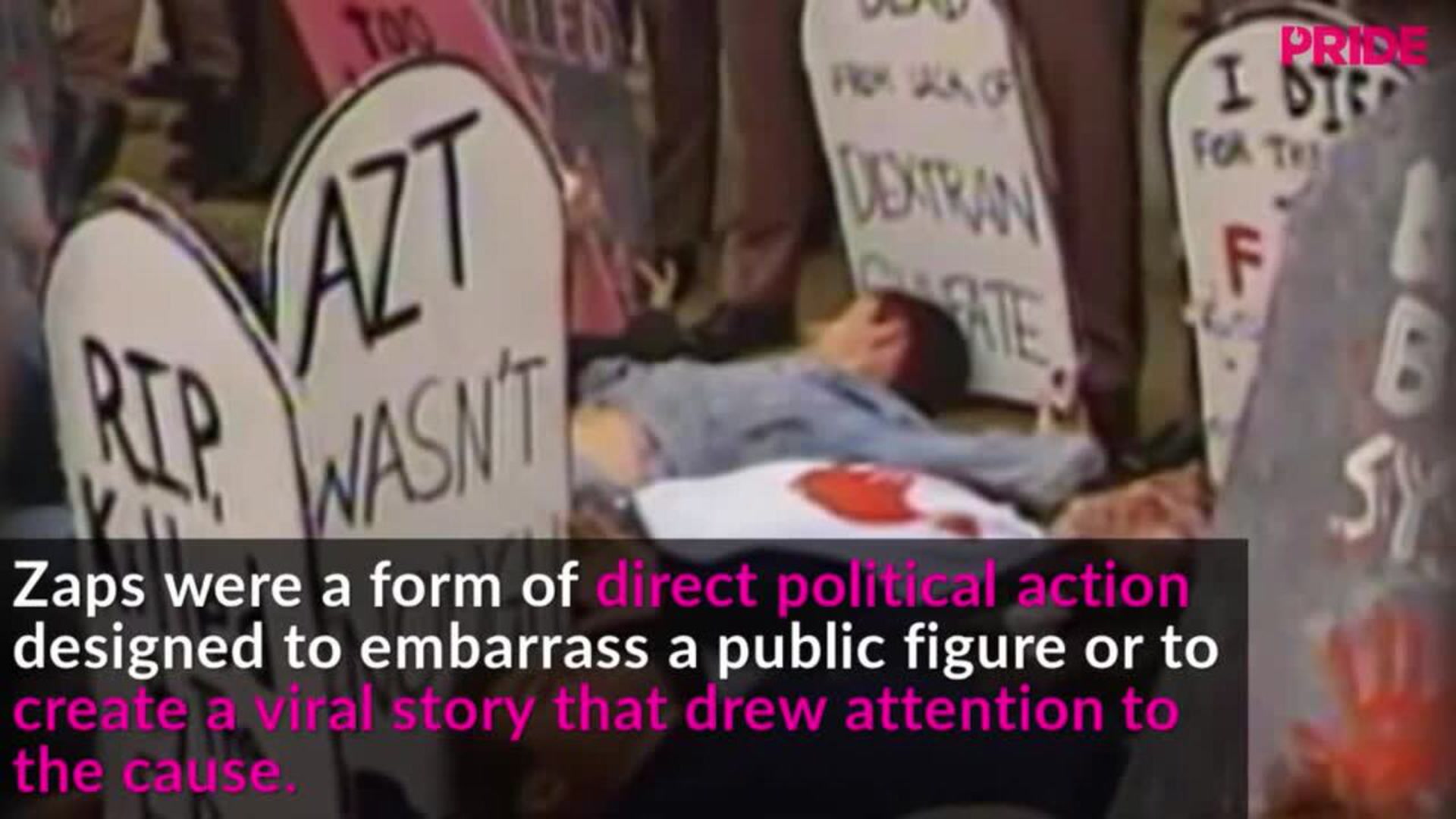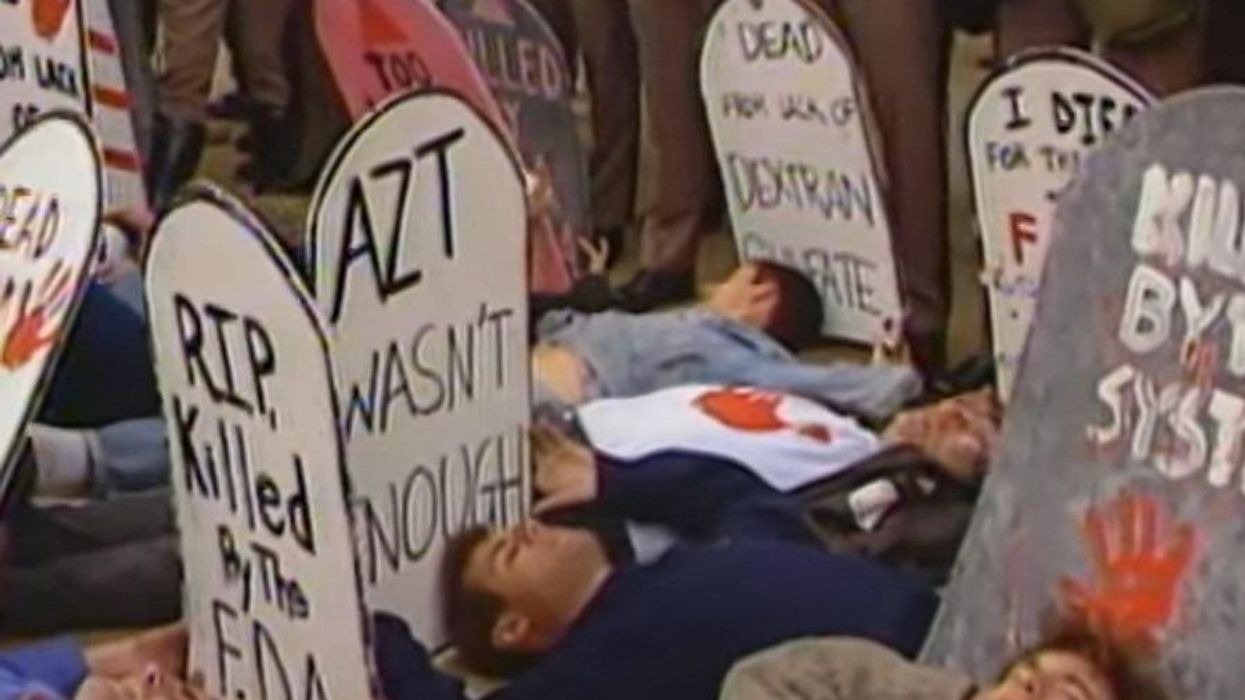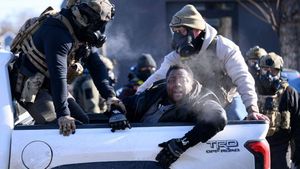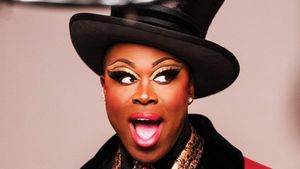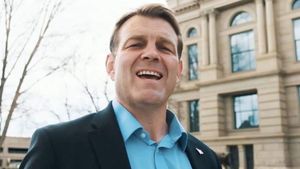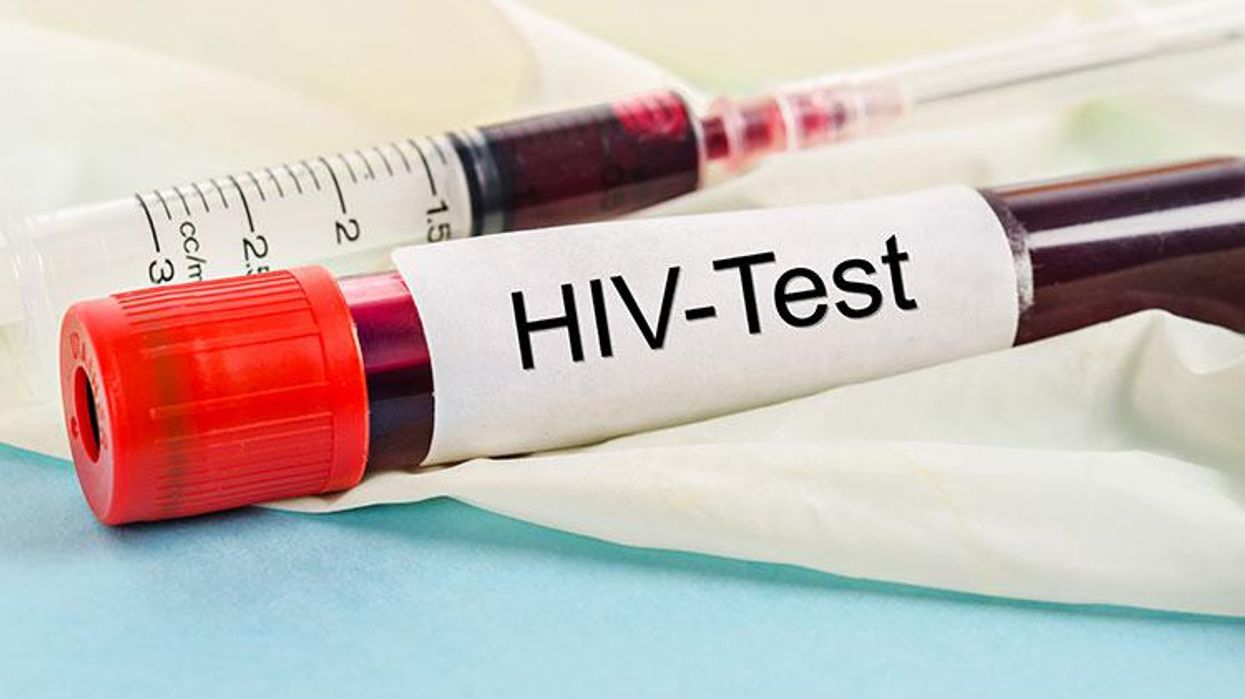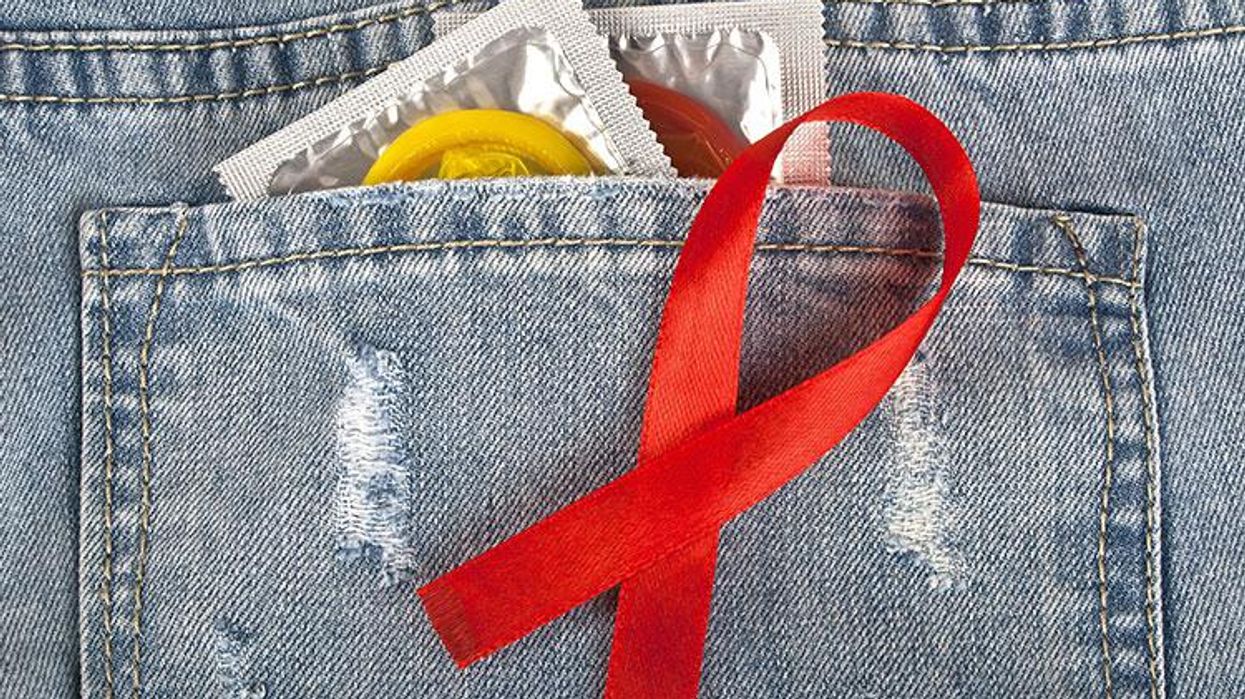Donald Trump will be the next president of the United States, and with a Republican House and Senate and a vacant Supreme Court seat, his presidency will likely be the most harmful to LGBT and otherwise marginalized people since Ronald Reagan was in office—if not more so. President Obama and Hillary Clinton have asked the country to give Trump a chance, but I and many others who fear his bigoted proposed policies are preparing for the worst. Looking at how gay liberation and AIDS activist groups fought the deadly policies of the Reagan administration can provide some guidance for the challenges we will face in the next four years. Here are five ways we can learn from the protest tactics of ACT UP and Queer Nation.
1) Start organizing now with weekly meetings.In March of 1987, playwright and AIDS activist Larry Kramer addressed a crowd at the New York Lesbian and Gay Community Service Center, and asked, "Do we want to start a new organization devoted solely to political action?" The question inspired weekly meetings of ACT UP with attendance of over 800 per meeting. Chapters sprung up across the country. If we want to combat the discrimination Trump and Pence have promised during his presidency, now is the time to start organizing, building our numbers, and forming our goals.
2) Use direct action zaps. Zaps were a form of direct political action popularized by gay liberation groups like ACT UP and Queer Nation. Zaps were designed to embarrass a public figure or celebrity, or to create what we would today think of as a viral story that drew attention to their cause. ACT UP used a zap-like form of direct action during their "die-in" on Wall Street to protest price gouging for HIV and AIDS medication. Recently, we’ve seen Black Lives Matter adopt the "die-in" as an effective form of protest. Queer Nation’s zaps were also designed to shock the public into awareness. In the 1990s, they were known for entering straight bars and playing spin the bottle, or staging "kiss-ins" in public spaces. Zaps obviously put participants at risk of arrest and physical violence, which brings us to a third lesson we can learn from these movements.
3) Be strategic and mindful about who can participate, and what role they can fill.
At times, ACT UP struggled with the visibility of LGBT people of color, because people of color were more heavily criminalized for participating in militant direct action protest. Since Trump has made it clear that he wants to implement a Nixon and Reagan-like "law and order" approach, and he has called for banning Muslims, building a wall between the U.S. and Mexico, and the mass deportation of immigrants (implying this really only applies to immigrants of color), we need to keep in mind who the most vulnerable members of our movements are going to be. We need to have bail funds and emergency contacts for people of color, people who are undocumented, disabled people, and transgender people who participate in protests. We also need to have behind-the-scenes roles for anyone who isn’t comfortable taking that risk.
4) Make an immediate impact.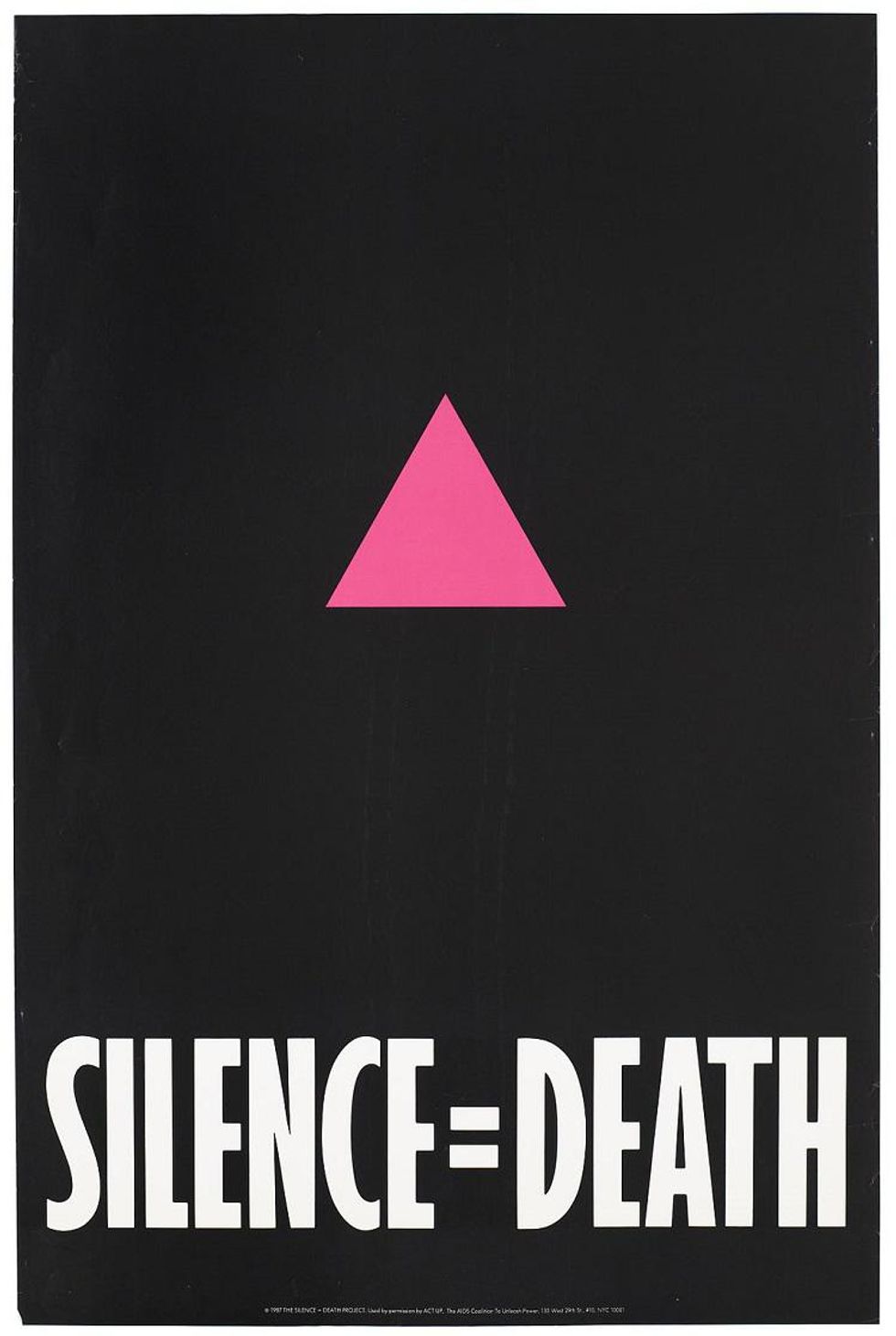
5) Never give up.
AIDS activists and gay liberation groups persevered as their members were dying. Reagan didn’t mention the word AIDS until 1985 and he didn't make a public address until 1987, near the end of his second term and seven years into the epidemic. AZT was not approved until 1987, but in that same year, the United States shut its doors to HIV-positive immigrants. If Trump accomplishes a third of what he’s proposed, the most vulnerable and marginalized members of our country will, without a doubt, suffer. We need to find this same strength—to keep protesting, and marching, and organizing for equality, even when progress seems impossible.
Watch interviews with ACT UP activists at the ACT UP Oral History Project website.
